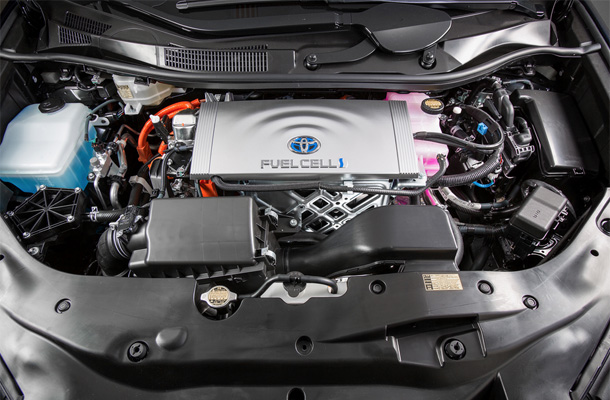Car Race Promotes Hydrogen Fuel Tech
November 13, 2017
10 Campolindo students will participate in a 4 hour competition on February 10, hosted by Toyota. Participants will attempt to complete as many laps on the track as possible in hydrogen fueled cars.
Toyota’s Mirai is a car designed to use hydrogen fuel instead of gas.
Junior Connor Gregg and senior Christian Meckfessel hope to recruit additional people to participate in the race.
Meckfessel said, “I’ve always been a car person, and I’m really interested in this new technology and it sounded like fun… I’m not nervous because I am a good driver. I think we have a good chance of going to finals, and winning. Go cougs!”
The concept was intriguing to Gregg. He wanted to experience how a hydrogen fueled car worked.
For Toyota’s part, they want to show how efficient and simple it is to fuel cars with hydrogen, as it is one of the most easily accessed elements.
AP Environmental Science and Biology teacher Tren Kauzer explained, “The main idea is that hydrogen fuel cells take hydrogen gas and they let the hydrogen ion pass across a membrane, and as the hydrogen ion goes across the membrane, it generates an electrical charge and then on the other side of the membrane, the hydrogen bonds with oxygen in the air, and produces H2O. So, the only thing that comes out of the tail pipe is water which is pretty cool.”
Auto-shop teacher Steve Boone said the intent of the race is to integrate science and car knowledge. “My side is more of the car side, and using the hydrogen cell that’s in the car, and doing the competition which is the endurance race. Because alternative fuels is one the portions of my class, that’s where I’m teaching it,” he said.
Kauzer is also trying to tie the event into his classroom activities. Using a Toyota kit Kauzer hopes to use the windmill and solar panel it contains to examine fuel cell technology.
While hydrogen is extremely flammable, Kauzer said the race will be safe for students. “The tanks of hydrogen are super small, and it’s not hydrogen gas in the little tanks it’s hydrogen that is almost trapped in a gel,” he explained.
Kauzer hopes these specially powered cars will grow to be more popular, as they are much better for the environment. Although there are many buses and cars which use the hydrogen gas, the percentage of them compared to all other alternatives are relatively small. “If you make the hydrogen gas using solar power then it is carbon neutral. No CO2 is generated in the process which makes it environmentally friendly,” Kauzer said.
Toyota is working to make hydrogen fueled cars just as affordable as the average Hybrid by 2025. In the Bay Area, hydrogen fuel has also become more accessible at gas stations.
Both Boone and Kauzer would like to convince more students to participate in the race. “We are hoping for more people. We can go up to 10. It would be really cool, maybe putting this in La Puma will help.” said Boone.
If the team finishes in the top 10 in February, it will advance to the state finals on March 14.

